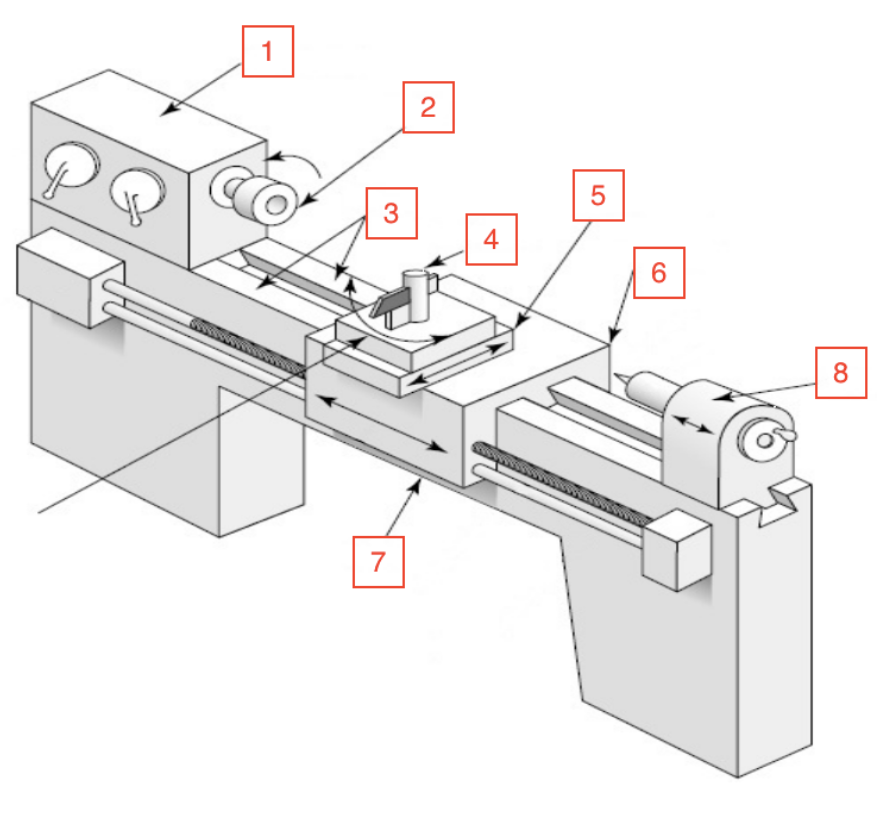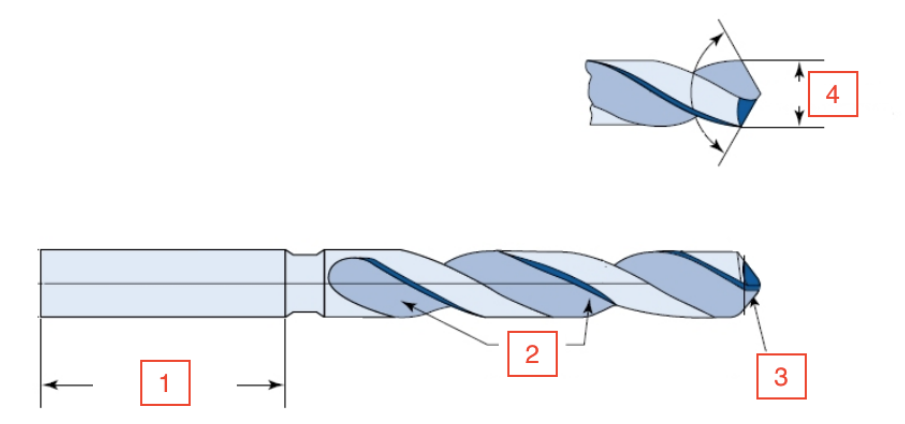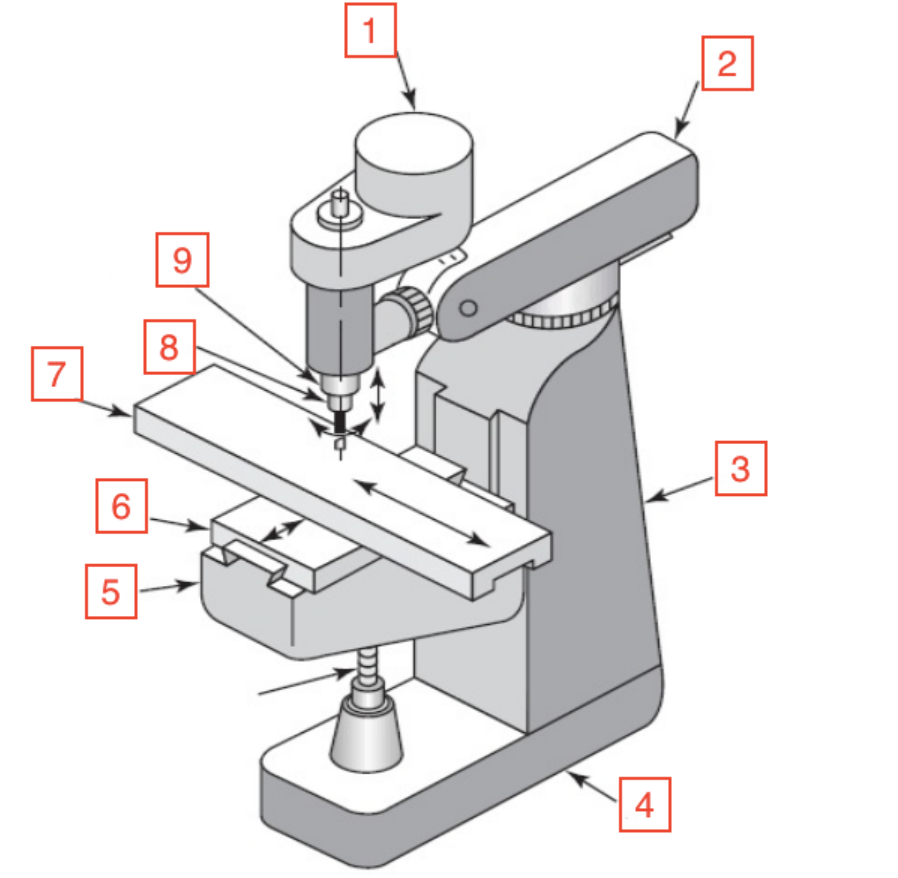HW1: Turning,Milling & Drilling Processes
5.0(1)
Card Sorting
1/26
There's no tags or description
Looks like no tags are added yet.
Study Analytics
Name | Mastery | Learn | Test | Matching | Spaced |
|---|
No study sessions yet.
27 Terms
1
New cards
Lathe Turning
A metal cutting process used for the generation of cylindrical surfaces. Normally the workspace is rotated on a spindle and the tool is fed into it radially, axially, or both ways simultaneously, to produce the desired surface
2
New cards
Work holding methods
“Held in a chuck”
“Held in a collet”
“Held between Centers”
“Held in a collet”
“Held between Centers”
3
New cards
Held in a chuck
When a workpiece is _________, it is clamped in a rotary chuck containing 3 or 4 jaws for security
4
New cards
Held in a collet
When a workpiece is ______, it is held in precision cylindrical bushings
5
New cards
Held between centers
When a workpiece is_______, it is supported between 2 pointed mandrels.
\-Used for long slender pieces
\-Used for long slender pieces
6
New cards
True
T or F: All standard tool holders are designed to cut with the cutting edge or point located on the center line of the machine and workspace
7
New cards

Name all of the Locations
1-Headstock
2-Spindle
3-Ways
4-Tool Post
5-Cross Slide
6-Carriage
7-Bed
8-Tailstock
2-Spindle
3-Ways
4-Tool Post
5-Cross Slide
6-Carriage
7-Bed
8-Tailstock
8
New cards
Turret Lathe
Engine Lathe
Engine Lathe
Two Different Types of Lathe
9
New cards
Turret Lathe
Represents First step towards high production turning machines
Replaces the tail stock and tool post compound assembly with tool-holding turrets
Includes “skill of the worker”, inexperienced workers can reproduce identical parts
Higher production needs
Replaces the tail stock and tool post compound assembly with tool-holding turrets
Includes “skill of the worker”, inexperienced workers can reproduce identical parts
Higher production needs
10
New cards
Engine Lathe
Lower production needs
Skilled operator and requires time to produce identical parts
Skilled operator and requires time to produce identical parts
11
New cards
Milling
A process of generating machined surfaces by progressively removing a predetermined amount of material or stock from the work piece which is advanced at a relatively slow rate of movement or feed to a milling cutter rotating at a comparatively high speed
12
New cards
End Milling
The use of the end and periphery of the cutting tool to create a shoulder or pocket
13
New cards
Face Milling
The use of the end or tip of the cutting tool to create a flat work piece surface
14
New cards
High speed steel
From what material are most solid milling cutters and drills made?
15
New cards
Vise
What is the most common type of work holding device for a milling machine?
16
New cards
True
T or F: Drilling accounts for the majority of holes produced in industry today
17
New cards

Name of the components of the drill
1-Shank Length
2-Flutes
3-Lip
4-Drill diameter
2-Flutes
3-Lip
4-Drill diameter
18
New cards

Name of the components of the Mill
1-Motor
2-Overarm
3-Column
4-Base
5-Knee
6-Sadde
7-Table
8-Spindle
9-Quill
2-Overarm
3-Column
4-Base
5-Knee
6-Sadde
7-Table
8-Spindle
9-Quill
19
New cards
Facing
Surfaces are typically positioned perpendicular to the axis of the workpiece in the “___” operation.
\-Dominated by racial feed
\-Dominated by racial feed
20
New cards
Knurling
In an operation known as “_____,” a regular cross-hatched pattern is produced in work surfaces through metal forming
21
New cards
Turning
The generation of any cylindrical surface with a single point tool is referred to as “______.” In this operation, the direction of the feeding motion is predominately axial with respect to the machine spindle.
22
New cards
Chamfering
For a “_____” operation, a tool cuts the corner of a cylinder at an angle
23
New cards
Threading
During a “_____” operation, external or internal threads are achieved by feeding a pointed tool linearly across the outside or inside surface of a rotating part
24
New cards
Drilling
In the “_____” process, a hole is produced by feeding a drill into a rotating workpiece along its axis
25
New cards
Boring
A single point tool is def linearly and parallel to the axis of a workpiece to enlarge a hole made by a previous process in the operation known as “_____”
26
New cards
Parting
For a “_____” operation, the end of a part is cut off by feeding a tool radially into a rotating workpiece at a particular location along its length
27
New cards
Profiling
In a “______” operation, both modes of tool feed are simultaneously desired to create tapered and contoured surfaces